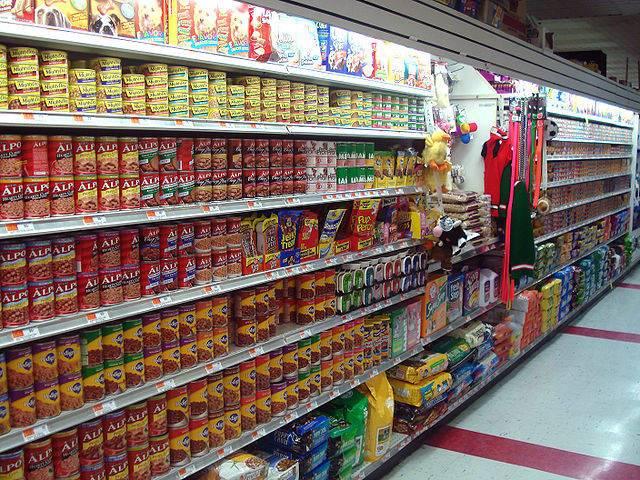
After evaluating over 900 pet food products from 71 companies, a Denver-based NGO concluded that far too many of them contain dangerous levels of toxins. Some of these pet foods contained 16 times the levels of lead found in the drinking water in Flint, Michigan, alleged the Clean Label Project. Other toxins found at high levels included arsenic, cadmium and residues from pesticides.
The report will trigger memories of the tainted pet food scandal a decade ago, when reports of contaminated food byproducts sourced from China blanketed the newswires. The culprit then was melamine, a chemical that found in ingredients such as wheat gluten and concentrated rice protein. Several years later, the retailer PetSmart removed several Chinese-made dog treat products from its shelves over fears that they were contaminated.
Pet food companies claim they are striving to clean up their supply chains. But some advocates say the $23 billion dollar industry is overall subjected to little regulatory oversight.
Researchers at the Clean Label Project evaluated several hundred pet food products not only for contaminants, but also for nutrition content in an attempt to verify these companies’ claims about protein, fat, fiber and other nutrients.
The organization claimed that, unlike food products for human consumption, pet foods are not held to the same rigorous testing standards. Although federal regulators say all pet foods must be safe for animals to eat, many manufacturers’ claims about nutrition and purity go unchecked, the NGO claimed in the introduction to its study.
The result is consumers paying for dog or cat food that has “human grade” ingredients or is “all natural.” But the reality, according to the nonprofit, is that a higher price is not necessarily indicative of higher quality or purity.
The top- and bottom-10 lists may surprise dog and cat lovers. While the safest foods included brands from smaller companies, foods from widely known brands such as Purina and Iams made the list. But the products Clean Label Projected tagged as under-performers were all made by companies that claimed their pet foods were made from the highest quality ingredients, including rabbit, venison, goat and berries. The same bottom-10 list also included brands that were supposedly “vegan” or formulated for puppies.
Clean Label Project listed the toxins for which it tested these products. The NGO says it contracted with a third-party laboratory to test the cat and dog food products for contaminants. A group the organization described as a “medical advisory board” then analyzed and benchmarked those results. Finally, Clean Label Project gave each product a rating with five stars for those judged to be the safest, and one star for those products with the highest levels of contaminants.
The report caps a tough month for several pet food suppliers. The Food and Drug Administration (FDA) announced recalls for several products, from pig ears to “braised beef” canned dog food. The causes included salmonella, beef thyroid hormone and even a barbiturate. As Forbes reported, meat from an animal euthanized with pentobarbital was included in one company's dog food blend, which sickened five dogs and killed one in Washington state.
Image credit: Jeffrey O. Gustafson/Wiki Commons

Leon Kaye has written for 3p since 2010 and become executive editor in 2018. His previous work includes writing for the Guardian as well as other online and print publications. In addition, he's worked in sales executive roles within technology and financial research companies, as well as for a public relations firm, for which he consulted with one of the globe’s leading sustainability initiatives. Currently living in Central California, he’s traveled to 70-plus countries and has lived and worked in South Korea, the United Arab Emirates and Uruguay.
Leon’s an alum of Fresno State, the University of Maryland, Baltimore County and the University of Southern California's Marshall Business School. He enjoys traveling abroad as well as exploring California’s Central Coast and the Sierra Nevadas.














